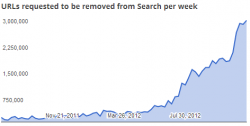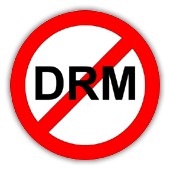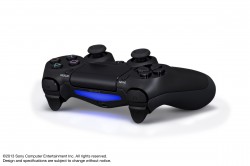Weekly News Roundup (24 February 2013)
So a big week this week, with the PS4 being “unveiled”. I don’t know who thought it was a good idea to launch a console without having a console to show off, but kudos for all those involved that went along with the event, which had a “shit, I didn’t finish my homework – Oh well, I’ll just wing it” feel to it. The news about the lack of a console ended up overshadowing the launch slightly, and in my opinion defeats the purpose of getting one on Microsoft by “unveiling” earlier, and makes the whole thing feels amateurish and rushed. And perhaps I’m the only one underwhelmed by what that PS4 brings to the table – I mean a faster game console with better graphics is always cool, but people expect more than that for a new console these days. Microsoft is said to have their own unveil in April, or June at the lastest (at E3), so it will be interesting to see if the Redmond giant has gone with the “more of the same” approach as per the PS4, or whether they will try and surprise us with what’s on offer (AR glasses, a Kinect that can do fingers …).
Not too much news this week, especially if you discount the PS4 stuff, so we’ll get through it in no time.

The RIAA is not too pleased with Google’s anti-piracy demotions, presenting research that shows the worst music piracy sites are still ranking well in Google.
The research appears to show that for sites that are deemed as “serial infringers” (according to Google’s own publicly available data) are still consistently ranking on the first page or in the top 3-5 results. This may sound like Google isn’t doing anything about piracy, but as I explain the article linked to above, the “serial infringer” signal is only one of thousands of “quality signals” that Google looks at, each with its own weight in terms of importance. The most important signals will always be site popularity and the number of incoming links and piracy websites are usually pretty good in these two areas, much more so than legal websites.
For Google though, the demotion has to balance the appeasement of groups like the RIAA, and the search experience of users. The sad fact is that most piracy websites will be a much better match than what legal websites can offer, so from an user experience point of view only, it makes no sense to have some random blog that features a single line about an artist/song on page one, but having a link to listen/download the song on page 2. If the RIAA really wants piracy websites to be pushed to page 2, perhaps it should help fund the creation of new legal and relevant websites that are good enough to be deemed first page worthy.
Also, from my own personal experience, once a result ranks outside of the top 2, there will be hardly anyone clicking on those links. So while Google may still rank piracy websites on page one, or in the top 3-5, if these links were number one prior to the demotion, then the demotion is working exactly as intended, and traffic to these piracy websites should have been reduced dramatically. Of course, the RIAA would not really want to point out that, despite Google sending maybe 80% less traffic to these music piracy websites, the actual effect on music sales and even the piracy rate may be negligible. It may just mean that people will shift to using another method to get their pirated music, bypassing Google the process (I don’t think Google is the main avenue for people seeking pirated stuff these days, not when they already know of sites like The Pirate Bay). The increasing popularity of Spotify may have more of an effect on piracy rate than anything Google can do for the RIAA.
But Google’s appeasement policy will continue, as it tries to shift focus away from its search results. A report by the UK’s Telegraph suggests that Google is thinking about linking up with financial services providers, such as PayPal, Visa and Mastercard (for example), to cut off the funding source of suspected piracy websites. No details about how exactly this will work, but my guess is that Google will pass on its DMCA takedown data to these financial companies, and get them to suspend any accounts associated with these websites. Focus shifted.
——
The issue of DRM for eBooks has been raised again this week after a group of three independent booksellers filed a class action anti-trust lawsuit against Amazon and the “Big Six” book publishers. The booksellers allege that Amazon’s market dominance, and their insistence on using a proprietary DRM system that cannot be used outside of Amazon apps and devices, and along with the major publisher’s reluctance to allow smaller booksellers to sell eBooks either DRM free, all amount to a violation of the Sherman Act.
But while this seems like a crusade against DRM, one that unfortunately seems like un-winnable given the fact that the DoJ has investigated similar claims and found little reason to take further action against Amazon, what the booksellers want isn’t actually a DRM free utopia, but just a DRM ecosystem they can get their teeth into. While they would love it if publishers agreed to sell books DRM-free, the reality is that this isn’t really going to happen. Instead, the booksellers want to either be able to sell eBooks that contain Amazon’s DRM, or for Amazon to start using a DRM that they can also deploy too. And then for all the other major eBook sellers, like B&N with their NOOK device, to follow suit. Good luck to them, and you do feel for the smaller players in the eBook market, but this really is an uphill battle.
The truth is that the current situation isn’t that good for publishers either. Due to Amazon’s dominance in the marketplace, publishers basically have to do whatever Amazon tells them to do, since the entire ecosystem, from the store, to the file format, to the DRM and to the device/app, are all controlled by Amazon in one way or another. This can allow Amazon to use their market position to force publishers to agree to a lower share of the revenue, which is good for the consumer as this will lower prices, but not so much for competitors, and for the publishers and authors themselves. But with no harm coming to consumers (yet), it’s a really hard case to argue, and so this is yet another example of DRM being used for a purpose other than copyright protection.
![]()
So the big news of the week was Sony’s PS4 launch, and it was one of the weirdest console launches events ever. It wasn’t so much of a console launch event, as an event that announces the eventual console launch event, because the console itself wasn’t actually present. This is despite Sony promising the console will be available by the end of the year, but it is kind of worrying that perhaps only 9 months out from being able to buy one, Sony are unable to even show us a prototype of the console’s plastic shell.
The only pieces of hardware they were able to show off were the controller, details of which, including photos, had already been leaked pre-event, and a new PS Eye camera. The new camera accessory that will work in conjunction with the controller’s new “light bar” for motion sensing and player detection (whether this will work more like Kinect, or like the current Move controller, is unknown at the moment). All fairly underwhelming and anti-climatic, to be honest, thanks to the pre-event leaks.
Hardware spec wise, the PS4 looks like a real monster, and some of the game demos looked fantastic as well. The x86 based CPU will complement an AMD based GPU and 8GB of DDR5 memory, specs that already make the recently launched Wii U look decidedly last-gen. The launch games are looking good too, with the eagerly awaited console debut of Diablo III, plus more games from Sony’s own franchises, including new Killzone and Infamous games.
For those worried about a block on second hand games, everything looks okay again as Sony denied that this will be part of the system. Cloud based gaming will be a big feature for the PS4, with PS3 and previous console titles being made available this way as a form of backwards compatibility. Instant play will allow games and demos to be played without pre-downloading too. For those without a fast Internet connection, which is pretty much most people here in Australia, games will still come on discs, and the PS4 will still play Blu-ray (kind of a given, there).
So plenty of info at the event, without the very thing most gamers wanted to see. Typical of Sony to screw something like this up though, something Xbox’s Major Nelson (aka Larry Hyrb) was keen to take advantage of. I guess they may be learning the lessons from the PS3 launch (in that it was a year later than the Xbox 360), but not sure having an earlier launch event (and one that’s missing the actual launch item) gives you much advantage if both consoles are going to be launched at roughly the same time.
That’s all we have for this week. See you in seven.



